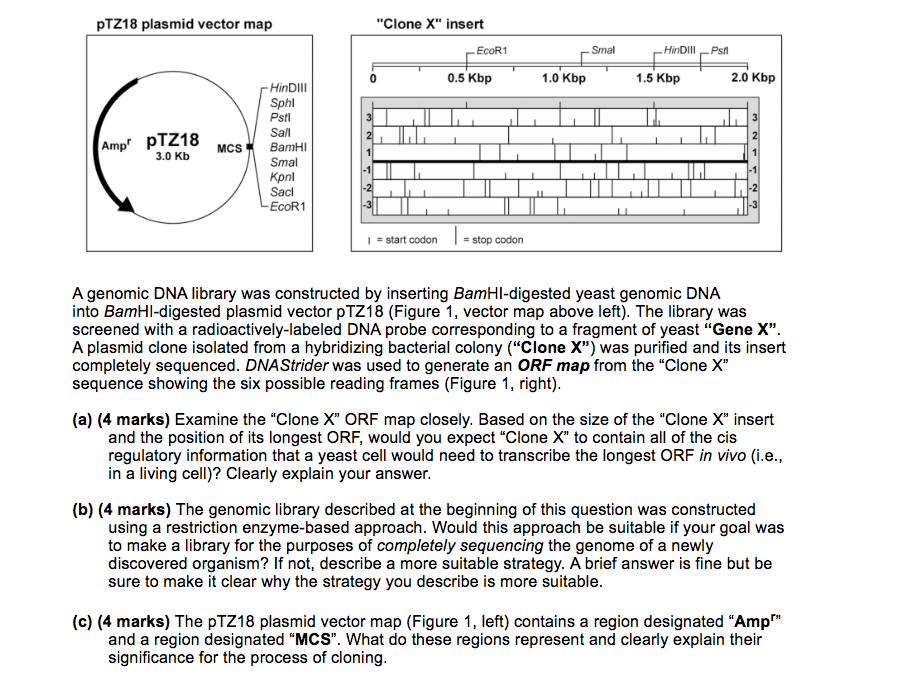clone
(klōn)n.1. A group of cells or organisms that are descended from and genetically identical to a single progenitor, such as a bacterial colony whose members arose from a single original cell.
2. An organism developed asexually from another and genetically identical to it, such as an animal produced from an egg cell into which the nucleus of an adult individual has been transferred.
3. A DNA sequence, such as a gene, that is transferred from one organism to another and replicated by genetic engineering techniques.
4. One that copies or closely resembles another, as in appearance or function: 'filled with business-school clones in gray and blue suits'(Michael M. Thomas).
v.tr.1. To make multiple identical copies of (a DNA sequence).
2. To create or propagate (an organism) from a clone cell: clone a sheep.
3. To reproduce or propagate asexually: clone a plant variety.
4. To produce a copy of; imitate closely: 'The look has been cloned into cliché'(Cathleen McGuigan).
v.intr.
[Greek klōn, twig.]
clon′al·ly adv.
American Heritage® Dictionary of the English Language, Fifth Edition. Copyright © 2016 by Houghton Mifflin Harcourt Publishing Company. Published by Houghton Mifflin Harcourt Publishing Company. All rights reserved.
clone
(
kləʊn)
n1. (Genetics) a group of organisms or cells of the same genetic constitution that are descended from a common ancestor by asexual reproduction, as by cuttings, grafting, etc, in plants
2. (Genetics) Also called: gene clone a segment of DNA that has been isolated and replicated by laboratory manipulation: used to analyse genes and manufacture their products (proteins)
3. informal a person or thing bearing a very close resemblance to another person or thing
4. (Telecommunications)
slanga. a mobile phone that has been given the electronic identity of an existing mobile phone, so that calls made on the second phone are charged to the owner of the first phone
b. any similar object or device, such as a credit card, that has been given the electronic identity of another device usually in order to commit theft
vb5. (Biochemistry) to produce or cause to produce a clone
6. informal to produce near copies (of a person or thing)
7. (Telecommunications) (tr) slang to give (a mobile phone, etc) the electronic identity of an existing mobile phone (or other device), so that calls, purchases, etc made with the second device are charged to the owner of the first device
[C20: from Greek klōn twig, shoot; related to klan to break]
ˈclonallyadv
Collins English Dictionary – Complete and Unabridged, 12th Edition 2014 © HarperCollins Publishers 1991, 1994, 1998, 2000, 2003, 2006, 2007, 2009, 2011, 2014
clone
(kloʊn) n., v. cloned, clon•ing.n. 1. a. a cell, cell product, or organism genetically identical to the unit or individual from which it was asexually derived.
b. a population of identical units, cells, or individuals derived asexually from the same ancestral line.
2. a person or thing that duplicates, imitates, or closely resembles another in appearance, function, etc.: The new computers are clones of the original model.
v.t. 4. b. to separate (a batch of cells or cell products) so that each portion produces only its own kind.
v.i. [1900–05; < Greek klṓn a slip, twig]
clon′al•ly,adv.
Random House Kernerman Webster's College Dictionary, © 2010 K Dictionaries Ltd. Copyright 2005, 1997, 1991 by Random House, Inc. All rights reserved.
clone
(klōn)Noun1. A cell, group of cells, or organism that is produced asexually from a single ancestor. The cells of an individual plant or animal are clones because they all descend from a single fertilized cell. A clone may be produced by fission, in the case of single-celled organisms, or by budding, as in the hydra. Some plants can produce clones from horizontal stems, such as runners. Clones of cells and some plants and animals can also be produced in a laboratory.
2. A copy of a sequence of DNA, as from a gene, that is produced by genetic engineering. The clone is then transplanted into the nucleus of a cell from which genetic material has been removed.
Verb1. To produce or grow a cell, group of cells, or organism from a single original cell.
2. To make identical copies of a DNA sequence. See more at genetic engineering.
The American Heritage® Student Science Dictionary, Second Edition. Copyright © 2014 by Houghton Mifflin Harcourt Publishing Company. Published by Houghton Mifflin Harcourt Publishing Company. All rights reserved.
clone
Past participle: cloned
Gerund: cloning
| Present |
|---|
| I clone |
| you clone |
| he/she/it clones |
| we clone |
| you clone |
| they clone |
| Preterite |
|---|
| I cloned |
| you cloned |
| he/she/it cloned |
| we cloned |
| you cloned |
| they cloned |
| Present Continuous |
|---|
| I am cloning |
| you are cloning |
| he/she/it is cloning |
| we are cloning |
| you are cloning |
| they are cloning |
| Present Perfect |
|---|
| I have cloned |
| you have cloned |
| he/she/it has cloned |
| we have cloned |
| you have cloned |
| they have cloned |
| Past Continuous |
|---|
| I was cloning |
| you were cloning |
| he/she/it was cloning |
| we were cloning |
| you were cloning |
| they were cloning |
| Past Perfect |
|---|
| I had cloned |
| you had cloned |
| he/she/it had cloned |
| we had cloned |
| you had cloned |
| they had cloned |
| Future |
|---|
| I will clone |
| you will clone |
| he/she/it will clone |
| we will clone |
| you will clone |
| they will clone |
| Future Perfect |
|---|
| I will have cloned |
| you will have cloned |
| he/she/it will have cloned |
| we will have cloned |
| you will have cloned |
| they will have cloned |
| Future Continuous |
|---|
| I will be cloning |
| you will be cloning |
| he/she/it will be cloning |
| we will be cloning |
| you will be cloning |
| they will be cloning |
| Present Perfect Continuous |
|---|
| I have been cloning |
| you have been cloning |
| he/she/it has been cloning |
| we have been cloning |
| you have been cloning |
| they have been cloning |
| Future Perfect Continuous |
|---|
| I will have been cloning |
| you will have been cloning |
| he/she/it will have been cloning |
| we will have been cloning |
| you will have been cloning |
| they will have been cloning |
| Past Perfect Continuous |
|---|
| I had been cloning |
| you had been cloning |
| he/she/it had been cloning |
| we had been cloning |
| you had been cloning |
| they had been cloning |
| Conditional |
|---|
| I would clone |
| you would clone |
| he/she/it would clone |
| we would clone |
| you would clone |
| they would clone |
| Past Conditional |
|---|
| I would have cloned |
| you would have cloned |
| he/she/it would have cloned |
| we would have cloned |
| you would have cloned |
| they would have cloned |
Collins English Verb Tables © HarperCollins Publishers 2011
clone
A group of genetically identical plants produced by vegetative propagation, such as by cutting, grafting or division.
Dictionary of Unfamiliar Words by Diagram Group Copyright © 2008 by Diagram Visual Information Limited
| Noun | 1. | clone - a person who is almost identical to another dead ringer, ringer colloquialism - a colloquial expression; characteristic of spoken or written communication that seeks to imitate informal speech look-alike, double, image - someone who closely resembles a famous person (especially an actor); 'he could be Gingrich's double'; 'she's the very image of her mother' |
| 2. | clone - a group of genetically identical cells or organisms derived from a single cell or individual by some kind of asexual reproduction organism, being - a living thing that has (or can develop) the ability to act or function independently |
| 3. | clone - an unauthorized copy or imitation copy - a thing made to be similar or identical to another thing; 'she made a copy of the designer dress'; 'the clone was a copy of its ancestor' |
| Verb | 1. | clone - make multiple identical copies of; 'people can clone a sheep nowadays' re-create, copy - make a replica of; 'copy that drawing'; 're-create a picture by Rembrandt' |
Based on WordNet 3.0, Farlex clipart collection. © 2003-2012 Princeton University, Farlex Inc.
klonklonovat
klónklónoz
クローンクローンを作る
klonavimasklonuotas augalasklonuotas gyvulysklonuoti
klonovaťrozmnožovať nepohlavnou cestou
klonklona
ทำให้กำเนิดมาจากเซลล์เดียวกันสิ่งมีชีวิตที่เกิดมาจากเซลล์เดียวกัน
hệ vô tínhnhân bản
clone
[kləʊn]B.VT → clonar
Collins Spanish Dictionary - Complete and Unabridged 8th Edition 2005 © William Collins Sons & Co. Ltd. 1971, 1988 © HarperCollins Publishers 1992, 1993, 1996, 1997, 2000, 2003, 2005
clone
[ˈkləʊn]n → clonem
an IBM clone → un clone IBM
a James Dean clone → un sosie de James Dean
Collins English/French Electronic Resource. © HarperCollins Publishers 2005
clone
vt → klonen
Collins German Dictionary – Complete and Unabridged 7th Edition 2005. © William Collins Sons & Co. Ltd. 1980 © HarperCollins Publishers 1991, 1997, 1999, 2004, 2005, 2007
clone
[kləʊn]2.vt → clonare
Collins Italian Dictionary 1st Edition © HarperCollins Publishers 1995
clone
(
kləun)
Clone X 4 3 2 Review
verb to produce a copy of an animal or plant from a single cell of that animal or plant. kloon يَسْتَنْسِخ клонирам clonar (na)klonovat klonieren klone; formere ukønnet κλωνοποιώclonar kloonima پرورش گیاه یا حیوان از طریق تکثیر سلولی kloonata cloner לְשַׁבֵּט हू-ब-हू बनाना kopiranje, kloniranje klónoz melakukan kloning clonare クローンをつくる 복제하다 klonuoti klonēt klon klonenklone klonować د ګیاه او یا حیوان پرورش клонировать klonovať klonirati klonirati klona ทำให้กำเนิดมาจากเซลล์เดียวกัน klonlamak 無性繁殖,複製 клонувати مماثل ، کلون بنانا sản sinh vô tính 无性繁殖,克隆
noun a copy of an animal or plant produced from that animal or plant. kloon نُسْخَه организъм, получен чрез деление clone klon der Klon klon κλώνοςclon kloon بافتزاد klooni clonage שבוט, שיבוט हू-ब-हू jedinka nastala kopiranjem, kopija klón hasil kloning clone クローン 복제 동물, 식물 klonuotas gyvulys/augalas klons mengklon kloonklonklon اوبدنه клон klon klon klon klon สิ่งมีชีวิตที่กำเนิดมาจากเซลล์เดียวกัน yapay yolla üretilmiş hayvan/bitki 複製出的動植物 клон مماثل ، کلون dòng vô tính 复制出的动植物
cloning noungenetic cloning. kloning, kloonvorming اسْتِنْساخ клонинг clonagem genetické klonování das Klonen kloning κλωνοποίηση (γονιδίων) clonación kloonimine همانند سازی kloonaus cloneשיבוט क्लोनिंग kloniranje klónozás kloning clonazione クローン化すること 유전자 복제 klonavimas klonēšana pengklonan het klonen kloning klonowanie ارثى клонирование klonovanie, rozmnožovanie nepohlavnou cestou kloniranje kloniranje kloning การโคลนนิ่ง klonlama 複製 клонування مماثل بنانے کا عمل dòng vô tính 复制,纯系化
Kernerman English Multilingual Dictionary © 2006-2013 K Dictionaries Ltd.
clone
→
اِسْتِنْسَاخ, يَسْتَنْسِخُ klon, klonovat klon, klone5 X 2 X 4
Klon, klonenκλωνοποιώ, κλώνοςclon, clonar kloonata, klooniclone, clonerClone X 4 3 2018
klon, kloniraticlonare, clone クローン, クローンを作る 무성 생식을 하다, 클론klonen, kloonklon, kloneklon, sklonowaćclonar, cloneклонировать, копия klon, klona ทำให้กำเนิดมาจากเซลล์เดียวกัน, สิ่งมีชีวิตที่เกิดมาจากเซลล์เดียวกันX 1 6 X 3 2 1
klon, klonlamak hệ vô tính, nhân bản克隆Multilingual Translator © HarperCollins Publishers 2009
clone
English-Spanish Medical Dictionary © Farlex 2012
English-Spanish/Spanish-English Medical Dictionary Copyright © 2006 by The McGraw-Hill Companies, Inc. All rights reserved.
Want to thank TFD for its existence? Tell a friend about us, add a link to this page, or visit the webmaster's page for free fun content.
Clone X 4 3 2019
Link to this page:

